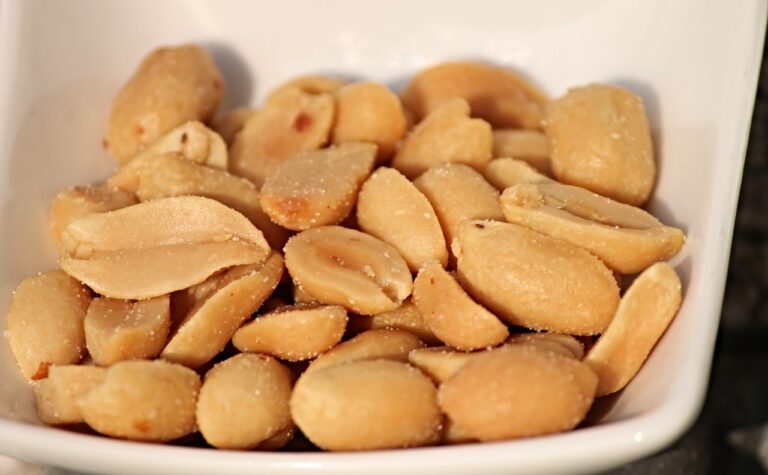Exploring the Link Between Protein Bars and Weight Management: 11xplay.com login, Lesar 247.com, Tiger 247 login
11xplay.com login, lesar 247.com, tiger 247 login: Protein bars have become increasingly popular in recent years as a convenient and portable snack option for people on the go. With busy schedules and limited time for meal preparation, protein bars offer a quick and easy way to get a boost of protein and energy when needed. But can protein bars really help with weight management? Let’s dive into the link between protein bars and weight management to see if they can be a helpful tool in achieving your fitness goals.
What Are Protein Bars?
Protein bars are convenient, pre-packaged snacks that are typically high in protein and low in carbohydrates and sugars. They come in a variety of flavors and are often marketed as a quick and easy way to increase your protein intake, especially for those with busy lifestyles or athletes looking for a post-workout snack.
Protein bars can be made from a variety of protein sources, including whey, soy, pea, or hemp protein. They may also contain other ingredients such as nuts, seeds, oats, and fruits to add flavor and texture.
Do Protein Bars Help with Weight Management?
The short answer is yes, protein bars can be a helpful tool for weight management when used as part of a balanced diet and regular exercise routine. Here are a few reasons why protein bars can be beneficial for weight management:
1. Protein helps to increase satiety: Protein is known to be more filling and satisfying than carbohydrates or fats, which can help you feel fuller for longer and reduce overall calorie intake throughout the day. Including a protein bar as a snack or meal replacement can help to curb cravings and prevent overeating.
2. Convenient portion control: Protein bars come in convenient portion-controlled sizes, making them easy to grab and go without the temptation to overeat. This can be especially helpful for those trying to manage their calorie intake and stick to a balanced eating plan.
3. Muscle recovery and growth: Protein is essential for muscle recovery and growth, especially after a workout. Consuming a protein bar post-exercise can help to repair and rebuild muscle tissue, leading to improved muscle tone and increased metabolism over time.
4. Nutrient-dense options: Many protein bars are fortified with vitamins and minerals, making them a nutrient-dense snack option compared to sugary or processed snacks. Choosing a protein bar with whole food ingredients can help to support overall health and wellness while managing weight.
Tips for Choosing the Right Protein Bar
When selecting a protein bar for weight management, it’s important to consider the following factors:
1. Protein content: Look for a protein bar that contains at least 10 grams of protein per serving to help promote satiety and muscle recovery.
2. Low sugar: Choose a protein bar with less than 10 grams of added sugars to avoid unnecessary calories and potential blood sugar spikes.
3. Fiber: Opt for a protein bar with at least 3 grams of fiber to help keep you full and support digestive health.
4. Whole food ingredients: Read the ingredient list and choose a protein bar that contains whole food ingredients like nuts, seeds, and fruits, rather than artificial additives or fillers.
5. Calorie count: Be mindful of the calorie content in protein bars and choose options that fit within your daily calorie goals for weight management.
Potential Side Effects of Protein Bars
While protein bars can be a convenient and healthy snack option, it’s important to be aware of potential side effects, especially if consumed in excess. Some common side effects of protein bars may include:
1. Digestive issues: Some protein bars may contain sugar alcohols or artificial sweeteners that can cause digestive discomfort, such as bloating, gas, or diarrhea.
2. Weight gain: Consuming protein bars in addition to a balanced diet may lead to weight gain if not accounted for in overall calorie intake. Be mindful of portion sizes and calorie content when incorporating protein bars into your diet.
3. Nutrient deficiencies: Relying too heavily on protein bars for nutrition can lead to nutrient deficiencies if they do not provide a well-rounded balance of macronutrients and micronutrients. Be sure to consume a variety of whole foods in addition to protein bars to meet your nutritional needs.
Frequently Asked Questions:
1. Can protein bars help with weight loss?
While protein bars can be a helpful tool for weight management, they should be consumed as part of a balanced diet and regular exercise routine. Including protein bars as a snack or meal replacement can help to increase satiety, support muscle recovery, and provide essential nutrients for overall health.
2. How many protein bars should I eat in a day?
The number of protein bars you should eat in a day depends on your individual calorie and protein needs. It’s best to consult with a healthcare provider or nutritionist to determine the appropriate amount of protein bars for your specific goals and dietary requirements.
3. Are all protein bars healthy?
Not all protein bars are created equal, and some may contain high amounts of added sugars, artificial additives, or fillers. It’s important to read the ingredient list and choose protein bars with whole food ingredients, adequate protein content, and low sugar to support your health and weight management goals.
In conclusion, protein bars can be a helpful tool for weight management when consumed as part of a balanced diet and exercise routine. By choosing protein bars with adequate protein content, low sugar, and whole food ingredients, you can reap the benefits of increased satiety, muscle recovery, and nutrient density. Be mindful of potential side effects and consult with a healthcare provider or nutritionist for personalized guidance on incorporating protein bars into your weight management plan.







